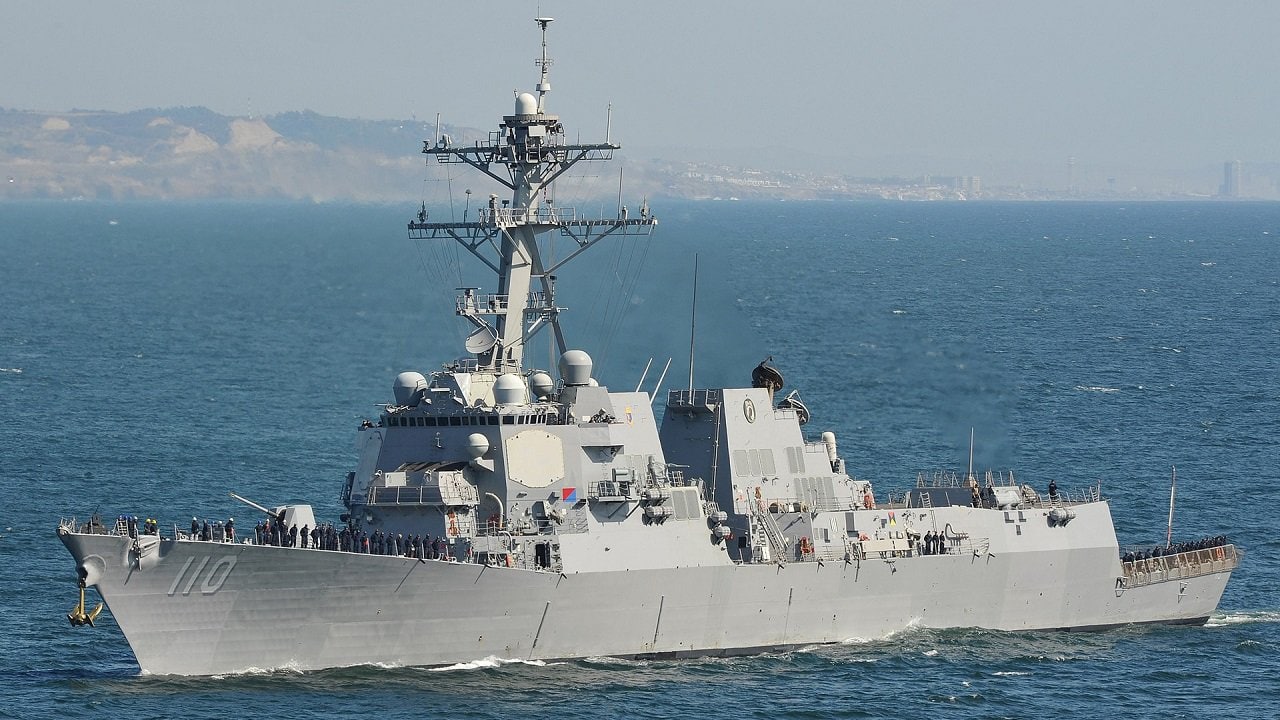On Tuesday, the United States Fifth Fleet announced that it had successfully intercepted a shipment of explosive material that was likely headed to aid the Iranian-back Houthi rebels in Yemen. U.S. forces discovered more than 70 tons of ammonium perchlorate, a powerful oxidizer commonly used to make rocket and missile fuel, as well as explosives, on a small fishing boat, described as a dhow, in the Gulf of Oman.
It was the U.S. Fifth Fleet’s first-ever interdiction of ammonium perchlorate.
“This was a massive amount of explosive material, enough to fuel more than a dozen medium-range ballistic missiles depending on the size,” said Vice Adm. Brad Cooper, commander of U.S. Naval Forces Central Command, U.S. 5th Fleet and Combined Maritime Forces. “The unlawful transfer of lethal aid from Iran does not go unnoticed. It is irresponsible, dangerous and leads to violence and instability across the Middle East.”
The search of the vessel, which was believed to have been traveling from the Islamic Republic also found more than 100 tons of urea fertilizer – a chemical compound with agricultural applications and also known for use as an explosive precursor.
Stopping the Flow
The U.S. Coast Guard ship USCGC John Scheuerman (WPC 1146) along with the U.S. Navy’s guided-missile destroyer USS The Sullivans (DDG 68) interdicted the small vessel as it transited international waters. Patrol coastal ship USS Hurricane (PC 3) and Navy explosive ordnance disposal technicians from U.S. 5th Fleet’s Task Force 56 also assisted during a weeklong effort to fully search the vessel and verify the type of material found.
According to the U.S. Fifth Fleet, the fishing boat and its four Yemeni crewmembers were intercepted last weekend while transiting from Iran along a route that has been historically used to traffic weapons to the Houthis in Yemen. The direct or indirect supply, sale, or transfer of weapons to the Houthis violates U.N. Security Council Resolution 2216 and international law.
ABC News reported that the dhow was so weighted down by the shipment that it posed a hazard to nearby shipping in the Gulf of Oman, a route that leads from the Strait of Hormuz. The U.S. Navy decided to sink the vessel on Sunday, with much of the material still on board. The four crewmembers were transferred to Yemen for repatriation on Nov. 15 when The Sullivans completed an at-sea exchange in the Gulf of Aden with the Yemen Coast Guard.
“Alongside our partner forces, CENTCOM is committed to security and stability of the region and to deterring the illegal and destabilizing flow of lethal material into the region over land, in the air, and the sea,” said Gen. Michael “Erik” Kurilla, U.S. Central Command (CENTCOM) commander.
This is just the latest seizure of materials that could be used for rocket and missile fuel.
In January, the Fifth Fleet’s guided-missile destroyer USS Cole (DDG 67) and patrol coastal ship USS Chinook (PC 9) interdicted another fishing vessel in the Gulf of Oman that had attempted to smuggle illicit weapons off the coast of Somalia months earlier. It was found to be carrying 40 tons of urea fertilizer.
A Saudi-led military coalition that is currently battling the Iran-aligned Houthis in Yemen, a conflict that has been going on since 2015, has repeatedly accused the Islamic Republic of supplying the group with weapons, a charge Tehran denies. A six-month cease-fire in the Yemeni Civil War, the longest of the conflict, expired in October after diplomatic efforts failed to renew it. Fighting has since escalated.
More than 150,000 people have been killed in the civil war since 2009, including some 14,500 civilians. Iran has continued to support the Houthi rebels, and Tehran is believed to have sent small arms, ballistic missiles, and drones.
A Senior Editor for 19FortyFive, Peter Suciu is a Michigan-based writer. He has contributed to more than four dozen magazines, newspapers, and websites with over 3,000 published pieces over a twenty-year career in journalism. He regularly writes about military hardware, firearms history, cybersecurity, and international affairs. Peter is also a Contributing Writer for Forbes and Clearance Jobs. You can follow him on Twitter: @PeterSuciu.

